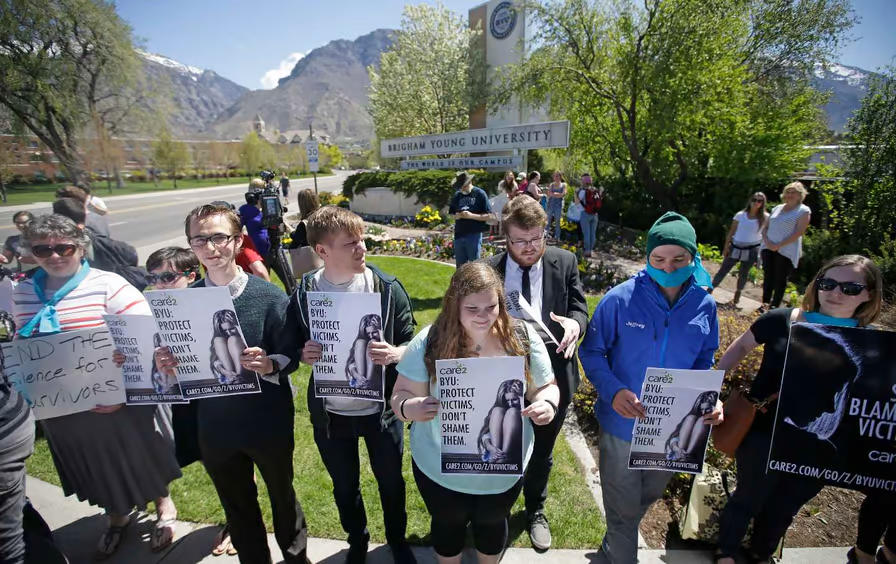November 20, 2022
How University Title IX Offices Fail Survivors
By Lisa Herforth-Hebbert
In 2014, an investigation by the Department of Education found that Princeton’s response to complaints of sexual violence violated Title IX. How much has changed since?
By Hannah Reynolds and Jessica Lambert

Fifty years ago, the Senate passed Title IX of the Education Amendments of 1972, providing protections against sexual harassment and other gender-based discrimination at educational institutions. Any school that received federal funding was now legally required to give equal treatment, including in cases involving sexual misconduct. Today, years after the rise of the #MeToo movement, students are still working to hold their schools accountable.
For years, thousands of college students across the country have organized around Title IX reform, demanding that universities take sexual violence and misconduct more seriously. Princeton University is no exception. In 2014, the Department of Education’s Office of Civil Rights launched an investigation into Princeton over Title IX complaints, finding that they had “favored the rights of students accused of sexual misconduct over those of the alleged victims.” Students held explosive Title IX protests on Princeton’s campus, culminating in a nine-day-long sit-in outside the president’s office in Nassau Hall. Protesters demanded that the university provide survivors the opportunity to pursue transformative processes of accountability. “Princeton does not uphold equal opportunity to education if it continues to indefinitely, or in any part, condone rape culture and re-traumatize those who have survived violence by subjecting them to grossly misrepresented and subpar procedures,” wrote Princeton IX Now, a student group that pushed for Title IX reform.
In the aftermath of these protests, federal changes to the Title IX process forced Princeton to upend the way it conducts Title IX investigations. “The university had relatively ample time to prepare for these federal changes and institute a more equitable Title IX process,” said KiKi Gilbert, a student activist who later served on the Ad Hoc Committee on Sexual Climate, Culture, and Conduct, an administrative body within Princeton meant to address sexual discrimination and misconduct on campus.


